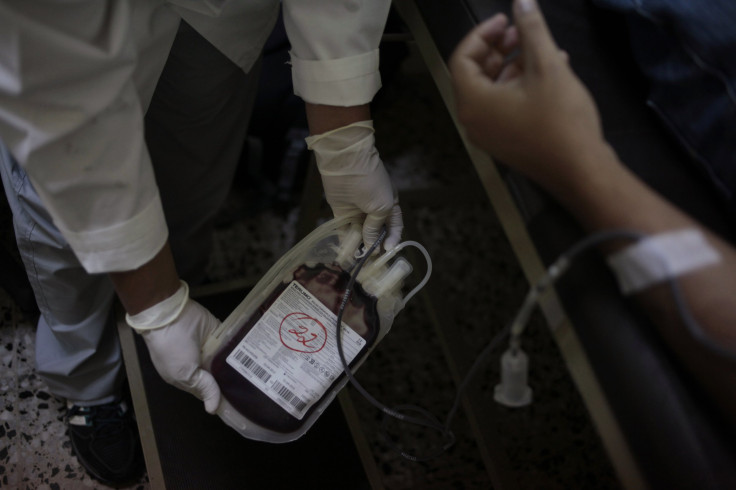Why Blood Donation Shortages Are Common After July 4th

Amid a blood donation shortage, the American Red Cross is calling for donors of all blood types to give the life-saving gift.
Over the past couple months, donations have dropped significantly, resulting in nearly 61,000 fewer donations than necessary, according to a statement released by the agency. And with many people on vacation around the time of the July 4th holiday, fewer volunteers are able to sponsor blood drives.
“The decline in summer donations is causing a significant draw-down of our overall blood supply, and we urgently need people to give now to restock hospital shelves and help save lives,” Shaun Gilmore, president of the Red Cross Biomedical Services, said in a statement. “Every day, patients recovering from accidents or those receiving treatments for cancer or blood disorders rely on lifesaving blood products regardless of the season.”
The American Red Cross, which supplies about 40 percent of the country’s blood and blood products, receives more than 5 million donations each year. A majority of donation drives are mobile and set up at high schools, colleges, places of worship, military installations, and community centers. However, during the summer months there’s nearly 700 fewer blood drives the week of July 4th than a typical week. Red Cross Donation centers also collect blood, but not nearly as much as the mobile centers.
“That is approximately the equivalent of the Red Cross not collecting any blood donations for an entire day,” the 2016 statement reads. “However, patients do not get a summer holiday from needing blood.”
Regardless of the season, blood donations are always needed. A 2016 Red Cross survey among blood donors revealed more than 75 percent of people planned to take a vacation last summer, many of whom said they planned it the week right before or after July 4.
Donating blood or platelets can be an intimidating experience. Two of the most common reasonspeople cite for not giving blood are: “Never thought about it” and “I don’t like needles.” It’s typically a quick process that takes about an hour, involving registration, medical history and mini-physical, donation, and refreshments. To schedule an appointment, use the Red Cross Blood donor app, visit redcrossblood.org, or call 1-800-REDCROSS (1-800-733-2767).
General requirements for blood and platelet donors include being in good general health and feeling well, being at least 17-years old in most states (16-years old with parental consent, in some states), and weighing at least 110 pounds at the time of donation. More specific criteria may affect whether you are eligible, including what medications you’re on or if you’ve travelled to certain countries. Here’s a more detailed list of eligibility criteria by topic.
Copyright Medical Daily News Service. All rights reserved.



















